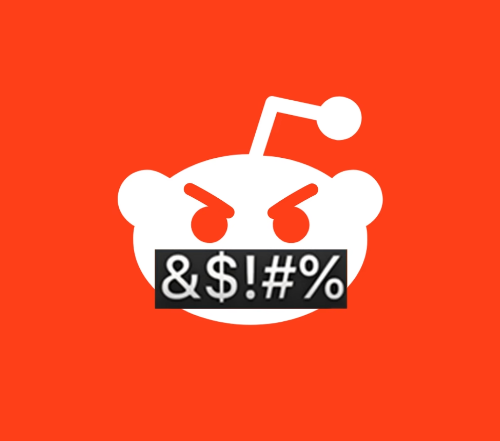
Is Hate Speech a Gender Thing? Reddit’s Darkest Corners Say… Maybe Not
That might sound like the opening line of a lukewarm Twitter take, but it’s actually the central question of a groundbreaking study that dug deep into Reddit’s most extreme gendered echo chambers. Spoiler alert: It’s not as simple as “men vs. women.” In fact, when researchers crunched the numbers, scanned the language, and mapped the hate, they discovered something wild—gendered hate speech might not actually be about gender.
Yep. You read that right.
This is the story of how linguists, computer scientists, and social researchers cracked open Reddit’s toxic vaults and found a twisted mirror image on both sides of the aisle.
Toxic Towns: Welcome to Reddit’s Extremes
If you’ve ever been sucked into a Reddit rabbit hole, you know how quickly a fun meme page can turn into a dumpster fire of drama. But this study wasn’t about casual snark or spicy takes. Researchers zoomed in on four extremist communities: two often labeled misogynistic (r/Incels and r/MensRights), and two seen as misandric (r/Feminism and the now-banned r/GenderCritical).
The mission? Figure out whether men and women weaponize language and emotion differently in hate-filled spaces.
Spoiler #2: The answer was not what anyone expected.
The Language of Hate Is… Surprisingly Consistent
First up: word counts. Researchers expected to find clear differences—maybe misogynistic groups talking about “submission” and “females,” while misandric groups harped on “patriarchy” and “oppressors.”
But nope.
Across the board, the most common words were shockingly similar. Everyone was obsessed with gender (“women” and “men” dominated each subreddit), and only a few terms were specific to certain groups. There wasn’t a unique “language of hate” on either side—just a collective stew of online bitterness.
Emotion Check: Who’s Angrier?
Next, the team analyzed emotion. They ran thousands of Reddit posts through emotion-detecting AI trained to sniff out sadness, anger, fear, and hate.
Here’s where things got spicy.
At the post level, everyone was mad, sad, or hateful in almost equal measure. Misogynistic posts leaned more toward sadness and anger. Misandric ones veered into fear and hatred.
But when researchers zoomed out to look at the users, one thing jumped out: users in misandric subreddits—particularly r/Feminism—were statistically more likely to express hate consistently across all their posts.
Yup. Let that sink in. The people using “hate” language the most weren’t necessarily in the communities you’d expect.
Social Maps of Misery: How Trolls Interact
Now for the nerdy (but fascinating) part: network graphs.
Researchers built social maps showing how users interact in these toxic spaces—who replies to whom, how often, and how tightly-knit the networks are. And guess what? Misogynistic and misandric communities looked nearly identical.
Same structure. Same level of echo chamber. Same weirdly obsessive engagement patterns.
Even stranger? The feminist subreddit and the men’s rights subreddit—supposedly ideological opposites—had eerily similar social shapes. It’s like watching two rival cults shout across the internet from identical bunkers.
The Big Twist: Hate Isn’t Gendered. It’s Community-Driven.
So here’s the real kicker.
After all the linguistic digging, emotional scanning, and social graphing, one thing became clear: the gender of the hate target didn’t matter nearly as much as the nature of the community. In other words, it’s not “misogynists act this way” and “misandrists act that way.” It’s more like, “toxic spaces attract toxic behavior—no matter who’s in them.”
This changes the game.
It means we can’t rely on gendered assumptions when designing moderation tools or studying online abuse. We need better systems that detect hate in all its forms, whether it’s coming from a sad incel, a raging misandrist, or someone who’s just been online too long without touching grass.
Why This Matters (and What You Can Do)
It’s tempting to point fingers. Misogyny is real. Misandry exists. But this research shows that the lines aren’t as clear as we thought.
Hate online isn’t a male problem or a female problem—it’s a human problem. And it flourishes in places where anger festers unchecked.
If you’re a platform developer, moderator, policymaker, or just someone trying to make the internet a little less awful, the lesson is this:
- Don’t build tools that only look for slurs aimed at women or men—build systems that understand patterns of hate.
- Don’t just punish—intervene. Provide resources for people trapped in toxic online loops.
- And above all, remember that hate speech, no matter who it targets, hurts everyone.
Let’s Explore Together
This research is just the beginning of a much-needed conversation. Want to jump in? Let’s keep it going:
💬 How do you see this research affecting the way we moderate platforms like Reddit or X?
👀 Have you ever seen (or been caught in) a gendered hate spiral online?
🧠 What’s the wildest, weirdest, or most jaw-dropping science fact you’ve learned recently?
Drop your thoughts in the comments—or better yet, share this post and spark a convo with someone new. Because if we want a healthier digital world, it’s gonna take all of us.
Stay Updated or Risk Falling Behind
Science is evolving rapidly—and in today’s chaotic information landscape, falling behind means losing ground to misinformation. This Week in Science delivers the most essential discoveries, controversies, and breakthroughs directly to your inbox every week—for free.
Designed for educators and science-savvy citizens, it’s your shield against bad data and outdated thinking.
Act now—subscribe today and stay ahead of the curve.
🔗 Liked this blog? Share it! Your referrals help defend truth and spread scientific insight when it matters most.



